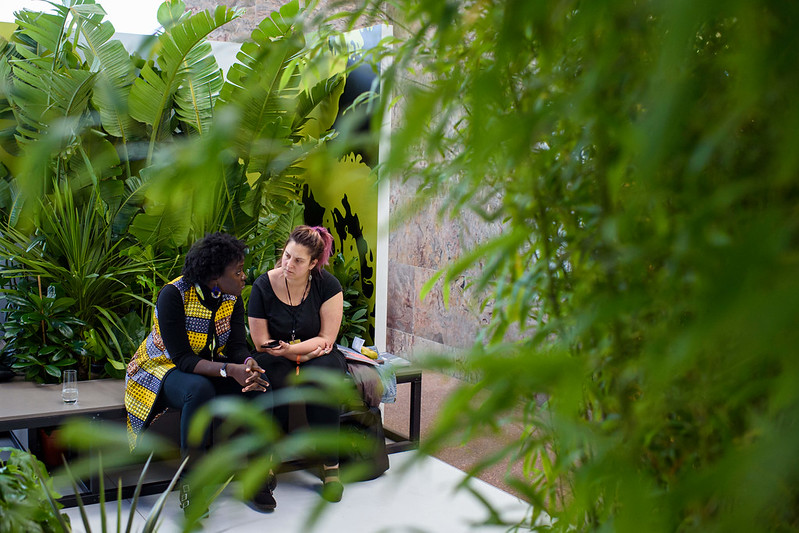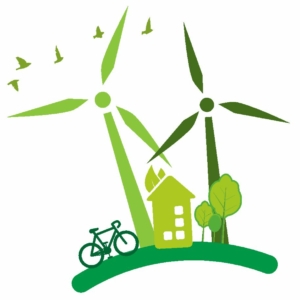Engaging Youth in a Digital Green Future
Know more about our activities
Know more about our activities

In the months prior to the outbreak of the COVID-19 pandemic, mainly since the Von Der Leyen Commission took office, we had seen a European Union ready to regain leadership in the fight against climate change. So much so that just 10 days after taking office, the President of the Commission went to COP25 in Madrid to announce a European Green Deal, a European Green Pact. With the pandemic that is devastating Europe and the imminent economic crisis that is already spreading throughout the world, what can be considered a reconstruction, reconstitution or a renewal of political, social and economic paradigms is imposed.
Despite the numerous agreements signed by the different countries that make up the European Union, such as: the Paris Agreement (2015), which aims to combat climate change by reducing greenhouse gas emissions; and the European Green Pact (2020), which calls for a 30% reduction in environmental pollution levels by 2030, many companies still continue to carry out manufacturing processes that cause great harm to the environment, mainly in terms of water and air pollution. The European Union has tried to reduce the use of certain electricity-generating elements such as coal and oil, with the aim of reducing the emission of gases that worsen air quality in cities. Thus, for more than five years, and with the signing of the Paris Agreement (2015), the aim has been to reduce the number of gaseous emissions that are harmful to human daily life.
Hopefully, this crisis helps to make an accurate diagnosis of the failures of the system to be able to renew its pillars overcoming those deficiencies. Renovation that will have to be part of a determined and firm commitment to the ecological transition. Furthermore, the fundamental objective should be to make the European Green Pact the framework for exiting the crisis, incorporating the lessons we are learning. Concern for environmental issues has been growing in the European Union in recent years The EU has placed climate change high on its political agenda with the European Green Deal, presented in December 2019 by the President of the European Commission, Ursula von der Leyen. Its main objectives are to ensure that Europe becomes the first climate-neutral continent in the world by 2050, achieving a sustainable economy where greenhouse gas emissions stop in 2050, that economic growth is decoupled from use of resources, and no people or places are left behind. Some factors that explain the low presence of youth issues on the political agenda are their limited participation in electoral processes and their reduced influence on political and economic decision-making bodies.

… teachers and trainers with essential knowledge of European Green Deal plan and the 2030 Agenda for Sustainable Development Goals in order to help them achieve sustainable behaviour.
… awareness among young people about the impact that climate change has on our daily lives and the importance of knowing and integrate the Green Deal plan and the 2030 Agenda for Sustainable Development Goals in their everyday lives.
… youth to be more active in democratic life and provided them with the needed tools so that they learn how to get involved in EU policy making.
Management and Coordination of the Action: Work package 1 is intended for all activities related to the general management and coordination of the action (meetings, coordination, project monitoring and evaluation, financial management) and all the activities which are cross cutting and therefore difficult to assign just to one specific work package. In such a case, instead of splitting them across many work packages please enter and describe them in Work package 1.
Training course for teachers/trainers: Training course aimed at teachers and trainers who work with young people with the main objective of mobilizing, training and educating teachers on climate change issues and specifically on the European Green Deal recovery plan and 2030 Agenda for Sustainable Development Goals.
Participation days: Awareness-raising debates designed to promote youth dialogue by engaging and making them participate actively in terms of EU climate change policy: these dynamic and awareness discussions on the Green Deal will be aimed to promote and strengthen young people’s participation in environmental issues of this EU plan that directly influences them
Communication, Dissemination and Exploitation: The objective of this work package is to communicate, disseminate and ensure the sustainability of the project deliverables. The expected outcome is to disseminate the model across the EU (its lessons, good practices and guide for replication) in order for it to be replicated in other EU local contexts and build upon existing good practices in the field of community and multi-stakeholders’ participation in local integration strategies.

The European Commission’s support for the production of this publication does not constitute an endorsement of the contents, which reflect the views only of the authors, and the Commission cannot be held responsible for any use which may be made of the information contained therein.
